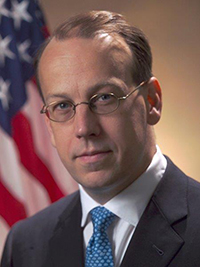Some days nothing seems to work out right. That must have been how House Speaker John Boehner (R-OH) felt yesterday when he found out that his controversial use of legislative branch appropriations to fund a legal effort in the federal courts arguing the constitutionality of the Defense of Marriage Act, or DOMA, not only failed in its objective, but also contributed to the Supreme Court’s ruling striking down the act.
In 2011, following a decision by the Justice Department that DOMA could not be defended on constitutional grounds, Speaker Boehner announced that he would use tax dollars appropriated to support the legislative activities of the House of Representatives to instead pay a private law firm, Bancroft PLLC, to fight a federal court ruling that overturned the 1996 legislation enacted under the speakership of Rep. Boehner’s predecessor, Rep. Newt Gingrich (R-GA). This not only elevated the constitutional issues surrounding DOMA, but also raised additional constitutional questions, namely the principle of separation of powers. To put it more plainly, Speaker Boehner’s action was somewhat akin to the legislative branch deciding it did not like how the Department of Transportation was building highways, and thus commissioning the architect of the Capitol to hire private contractors to engage in road construction.

Attorney Paul D. Clement
Beyond this, Speaker Boehner’s action certainly made it more difficult for him to maintain the image of a frugal protector of the public purse. The expenditures required to operate Speaker Boehner’s “mini Justice Department” grew exponentially over time. The $500,000 limit imposed by the first contract signed in April 2011 was raised on three separate occasions, and this spring it became public (see this contract between the House General Counsel and Bancroft PLLC) that Speaker Boehner had put the House on the hook for $3 million for payments to Washington attorney Paul D. Clement and his partners at Bancroft. Billing was limited to $520 an hour per attorney—an annual rate of more than $1 million a year—but that turned out to be the “average” rate that could be charged for all work by all attorneys at the firm. For example, if a junior associate billed 100 hours at $140 an hour, then a senior partner could bill the same number of hours at $900 an hour, or an annual rate of $1.8 million. As Clement might well confess, it is good to be friends with the speaker.
While the bills submitted by the firm are, under House procedures, subject to the review of the House Administration Committee, the chairwoman of that committee, Rep. Candice Miller (R-MI), has not shared them with either the public or the minority members of her committee. As a result, it is not known what rate the taxpayer was billed for this enterprise or how many hours of legal time the public purchased.
While Clement and his colleagues seemed to have fared very well in this whole adventure, the cause for which they fought—blocking same-sex marriages—not only fared poorly, but seemingly became a victim of the entire Boehner enterprise.
In the opinion on United States v. Windsor that Supreme Court Justice Anthony Kennedy delivered on Wednesday, the Court explained that in order to grant certiorari and hear the case, the Court had to not only determine that the case presented a “concrete disagreement between opposing parties that was suitable for judicial resolution,” but that the case also had to be one in which robust arguments were offered on both sides of the issue. Specifically, according to the opinion, the litigation of the case needed to provide “concrete adverseness” necessary to “sharpen the presentation of issues upon which the court so largely depends for illumination of difficult constitutional questions.”
The Court decided that the Windsor case did meet the test of “concrete adverseness” despite the fact that the defendant in the case, the U.S. government, had conceded that DOMA did not meet constitutional standards. The reason the case met the standard was Speaker Boehner’s litigation.
The Court found that the legal arguments prepared at Speaker Boehner’s behest and with the use of funds appropriated to the legislative branch provided the “substantial adversarial argument” necessary for the Court to hear the case. Justice Kennedy’s opinion concluded that Speaker Boehner’s efforts had produced a sufficiently “capable defense” to allow the ruling.
Clearly, the lower-court ruling of unconstitutionality would have stood in the absence of a Supreme Court review. But the dramatic decision handed down by the High Court will certainly speed up both the legal and social acceptance of same-sex marriage, which was precisely what Speaker Boehner was attempting to prevent.
Scott Lilly is a Senior Fellow at the Center for American Progress.